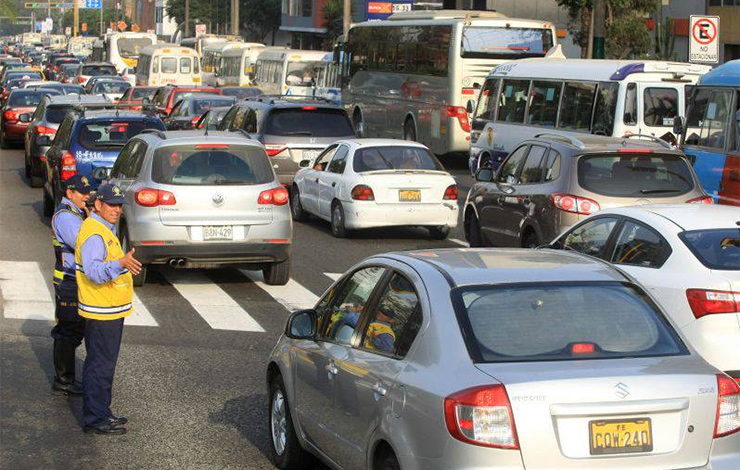Lima faces challenges in providing proper transport systems to its more than 8 millions inhabitants. According to the Ministry of Transport and Communications of Peru, there is an excessive number of mass transport units (25,874 vehicles in total) and an oversupply of taxis (250,000 units when it should have half).
Challenge

Lima faces challenges in providing proper transport systems to its more than 8 millions inhabitants. According to the Ministry of Transport and Communications of Peru, there is an excessive number of mass transport units (25,874 vehicles in total) and an oversupply of taxis (250,000 units when it should have half). In addition, a study done by the Metropolitan Municipality of Lima cited the lack of promotion for the development of alternative mobility systems in smaller scale, such as bicycles and walking transportation. Some of the transport problems were detailed in several studies: a high rate of car accidents, an inefficient public transport system, an old fleet causing air pollution above the maximum permissible limits, the increase of new cars, and a poor respect for the rule of law. The development and implementation of a cycling system is crucial to the development of a sustainable city. Although there is a growing demand for the use of bicycles in the city, policies aimed at promoting the use of bicycles are very limited. This can be explained by the weakness of the national and local governments to enforce legislation regarding sustainable means of transport, the ineffective strategy of authorities to inform the population about laws and regulations promoting the use of non-motorized transport; their limited capacity to guarantee the right to life and security of citizens using bicycles and inadequate infrastructure.
Program Summary
This initiative seeks to assist the national and local governments in enforcing and enriching regulations aimed at promoting sustainable urban transport in Peru, with a focus on non-motorized transport, and to strengthen the capability of organized citizens to demand the implementation of policies aimed at making Lima a friendlier city for cyclists within the framework of climate change policies. The Peruvian Society for Environmental Law analyzes the current legislation regarding the safe use of bicycles in the city, proposes a new pattern of measures that will allow a friendly cohabitation between different types of transportation, creates platforms for political incidence in public policies and disseminates these results throughout communication campaigns that will inform decisionmakers, local drivers and civil society movements.
This information will be disseminated through the Peruvian Agency of Environmental Information website (Peruvian Environmental News or “Actualidad Ambiental”). This site is a valuable resource of information on environmental issues for journalists and policymakers. The overall goal of this initiative is to contribute to the gradual and sustainable transformation of the urban transport system in Peru by strengthening the capacity of authorities and citizens to influence urban transport policies. With that purpose this initiative intends to:
- Raise awareness among decisionmakers, local leaders and authorities on the importance of implementing and enriching the legal and regulatory framework to promote the use of bicycles as a means of transport. The organization's goal is: "Empowered citizens, informed authorities."
- To generate legal proposals to enrich the regulatory framework of non-motorized transport, making the city of Lima an exemplary case of how sustainable transport reforms should be carried out.
- To strength the capacity of organized groups of cyclists, by providing legal and educational support in order to increase their presence and effectiveness at implementating measures aimed at making Lima a more sustainable city.
Impact
The city of Lima is based on a motorized system, leaving few options for more sustainable means of transport. The lack of adequate infrastructure, legislation and general cycling culture, leaves the cyclists as a discriminated group of users without legal tools to defend their rights. This project aims to produce a number of initiatives and policy suggestions that will make a positive impact on Lima's traffic and pollution challenges, and in so doing, empower others to choose more environmentally friendly means of transportation.
Anticipated Issues
The first and most important objective of this project will be sensitizing drivers, pedestrians, and civil society in general to respect cycling as an alternative type of transport. Traffic in Peru - and especially in Lima - is very disorganized, aggressive and disrespectful, which creates a dangerous scenario for cyclists. There needs to be a better understanding and awareness when driving of the existence of diverse forms of transport and their rights. The goal of this project is to propose improvements in public policies, which will mean working closely with decision makers to both convince them to act on behalf of cyclists, and to enact policies that will encourage more sustainable means of transport.
Partners
Partners include:
- Metropolitan Municipality of Lima
- Ministry of Environment of Peru Actibisimo (social movement for cycling)

